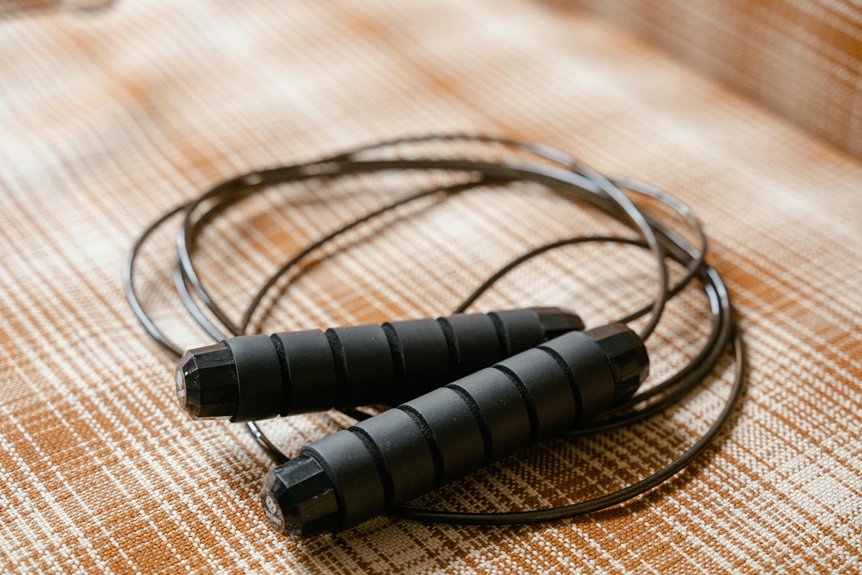
Are you struggling to lose weight despite your best efforts? You might not realize it, but your gut health could be playing a significant role in your journey. An imbalanced gut microbiome can mess with your metabolism and trigger unhealthy cravings. Understanding how your gut affects your weight loss can be the key to revealing your success. Curious about what signs to watch for and how to improve your gut health? Let’s explore further.
Understanding the Gut Microbiome
The gut microbiome is like a bustling city, teeming with trillions of microorganisms that play an essential role in your overall health. These tiny residents, including bacteria, fungi, and viruses, help break down food, produce necessary nutrients, and protect against harmful pathogens.
When your gut microbiome is balanced, it promotes a healthy digestive system and supports your immune function. However, factors like poor diet, stress, and antibiotics can disrupt this delicate ecosystem. You might notice issues such as bloating, fatigue, or even mood swings when your microbiome is off-kilter.
To support your gut health, consider incorporating probiotics and prebiotics into your diet, eating a variety of fiber-rich foods, and minimizing processed sugars. Additionally, including medium-chain triglycerides (MCTs) in your diet can further enhance your energy levels and metabolism. Your gut will thank you!
How Gut Health Affects Metabolism
A well-balanced gut microbiome not only supports digestion but also plays a significant role in how your body metabolizes food.
When your gut bacteria are diverse and healthy, they help break down nutrients more efficiently, leading to better energy production. This means you’re more likely to convert the food you eat into usable energy rather than storing it as fat.
On the flip side, an imbalanced microbiome can hinder metabolic processes, making it harder for you to maintain a healthy weight.
To optimize your metabolism, focus on incorporating fiber-rich foods, probiotics, and fermented products into your diet. These choices can enhance gut health, ensuring your body efficiently processes nutrients and supports your weight loss goals.
The Link Between Gut Bacteria and Weight Gain
When your gut bacteria aren’t balanced, you might find it easier to gain weight than to lose it. Research shows that an imbalance in gut microbiota can influence how your body processes food.
Certain types of bacteria help break down nutrients, while others may lead to increased fat storage. If you have a higher ratio of harmful bacteria, you may absorb more calories and even crave unhealthy foods. This cycle can sabotage your weight loss efforts.
To restore balance, consider adding probiotics and prebiotics to your diet, like yogurt or fiber-rich fruits and vegetables. By nurturing your gut health, you can create a more favorable environment for weight loss and regain control over your body’s metabolism.
Signs Your Gut Health May Be Compromised
How can you tell if your gut health is off balance? Pay attention to signs like bloating, gas, or frequent indigestion.
If you’re experiencing unexplained weight changes, fatigue, or skin issues, your gut might be the culprit. You might also notice cravings for sugar or unhealthy foods, which can indicate an imbalance in gut bacteria.
Additionally, if you find yourself battling mood swings or anxiety, know that your gut and brain are connected. Regularly feeling sick or having a weak immune response can signal that your gut isn’t functioning effectively.
Foods That Promote a Healthy Gut
To support a healthy gut, incorporating specific foods into your diet can make a significant difference.
Start by adding fiber-rich fruits and vegetables like apples, bananas, and leafy greens; they help feed beneficial gut bacteria. Whole grains, such as oats and quinoa, are also great choices, providing essential nutrients and promoting digestion.
Don’t forget about legumes like lentils and chickpeas, which are high in fiber and protein.
Fermented foods like yogurt, kefir, and sauerkraut introduce probiotics, which can enhance gut health.
Finally, healthy fats from sources like avocados and olive oil support overall digestive function.
The Role of Probiotics in Weight Loss
Probiotics play an essential role in weight loss by supporting a balanced gut microbiome, which can influence your metabolism and appetite.
When you incorporate probiotics into your diet, you’re fundamentally adding beneficial bacteria that help digest food and absorb nutrients more efficiently. This can lead to improved energy levels and reduced cravings, making it easier to stick to your weight loss goals.
Foods like yogurt, kefir, and fermented vegetables are great sources of probiotics. Additionally, taking a high-quality probiotic supplement can further enhance gut health.
Remember, maintaining a healthy gut isn’t just about what you eat; it’s about creating an environment that promotes balance, which ultimately supports your weight loss journey.
The Impact of Stress on Gut Health
While you mightn’t realize it, stress can greatly disrupt your gut health and, consequently, your weight loss efforts.
When you’re stressed, your body releases cortisol, which can lead to inflammation and an imbalance in your gut microbiome. This imbalance may hinder nutrient absorption and promote unwanted cravings, making it harder to stick to a healthy diet.
Additionally, stress can slow down digestion, leading to bloating and discomfort, which may discourage you from exercising.
To combat this, consider incorporating stress-reduction techniques like mindfulness, yoga, or deep breathing into your routine.
Prioritizing self-care not only supports your mental health but also fosters a healthier gut, paving the way for more effective weight loss.
The Connection Between Gut Health and Cravings
Understanding how your gut health influences your cravings can empower you to make better food choices. Your gut houses trillions of bacteria that play an essential role in digestion and nutrient absorption.
When these bacteria are balanced, they help regulate hunger hormones and control cravings. However, an imbalance can lead to increased cravings for unhealthy foods, like sugar and processed snacks.
If your gut’s microbiome is off-kilter, it can signal your brain to seek out these less nutritious options, making weight loss harder. By acknowledging this connection, you can start to recognize your cravings as signals from your gut.
This awareness can motivate you to choose foods that nourish both your body and your gut, helping you achieve your weight loss goals.
Lifestyle Changes to Improve Gut Health
Making simple lifestyle changes can greatly improve your gut health and, in turn, support your weight loss journey.
Start by incorporating more fiber-rich foods like fruits, vegetables, and whole grains into your diet. These foods promote healthy digestion and feed beneficial gut bacteria.
Stay hydrated by drinking plenty of water, which helps your digestive system function smoothly. Consider adding probiotics, found in yogurt and fermented foods, to enhance your gut flora.
Regular physical activity also plays an essential role; aim for at least 30 minutes of moderate exercise most days.
Finally, prioritize sleep and stress management, as both can considerably impact your gut health.
Success Stories: Transforming Your Gut for Better Weight Loss
Transforming your gut health can lead to remarkable weight loss success, as countless individuals have discovered on their journeys.
Take Sarah, for instance; after focusing on her gut, she lost 30 pounds in just a few months. By incorporating probiotics and fiber-rich foods, she noticed fewer cravings and improved energy levels.
Then there’s Mike, who tackled his bloating by eliminating processed sugar. He shed 20 pounds and felt lighter and more vibrant.
These transformations show that prioritizing gut health isn’t just about digestion; it can be a game-changer for weight management.






